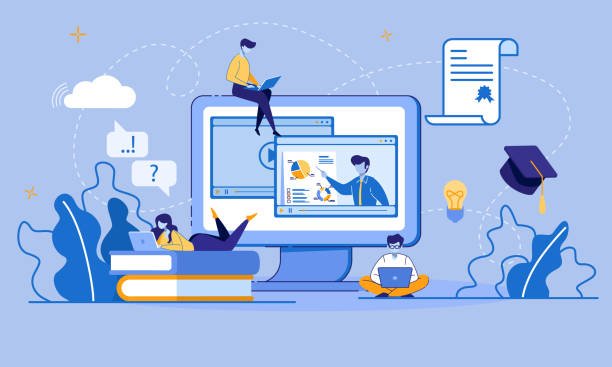What Are The Potential Benefits of AI in Education?

AI has the potential to improve the education system in a number of ways. Firstly, AI can help educators make better decisions about which students to teach and which resources to use. Secondly, AI can help educators identify and address problems more quickly. Finally, AI can help educators create more tailored educational content for individual students.
What is AI?
Artificial intelligence is a computer science field that deals with creating intelligent agents, which are systems that can reason and learn like humans. AI has the potential to improve the quality of education by automating tasks and providing personalized instruction.
One example of how AI could be used in education is by automatically grading student essays. This would allow teachers to focus on more important issues, such as discussing the essay with the student, instead of spending time grading it. AI also has the ability to identify patterns in data and make predictions, which could be used in teaching classes such as math or physics.
The History of AI in Education

AI in education has been around for quite some time now. In the early days, AI was used mostly to help teachers with grading and homework. However, recently AI has been used in a variety of ways to improve student learning.
There are a number of potential benefits to using AI in education. For example, AI can help teachers track student progress more accurately. It can also help instructors troubleshoot problems with students more quickly. Additionally, AI can help educators create custom learning plans for students based on their individual needs. Finally, AI can improve the overall educational experience by reducing distractions and improving communication between students and educators.
While there are many potential benefits to using AI in education, it is still early in the game. There are still plenty of unanswered questions about how best to use AI in education and what the ultimate outcomes will be. However, regardless of the outcome, it is clear that AI is playing an increasingly important role in educational settings across the globe.
Potential Benefits of AI in Education
AI has the potential to improve many aspects of education, from teaching methods to student engagement. Here are five benefits of AI in education:
1. More efficient and effective teaching methods: AI can help teachers be more strategic and organized, reducing the amount of time they need to spend on instruction. AI can also help teachers identify and track individual students’ progress, ensuring that all students are meeting their learning goals.
2. More engaged students: AI can help students learn in a more engaging way. It can help teachers create personalized learning plans and provide feedback on student work in real-time. This can encourage students to stick with their studies and achieve better grades overall.
3. Improved communication between educators and parents: AI can help educators keep parents updated on their child’s academic progress and ask them questions about what they think would be helpful for their child’s education. This helps parents feel more involved in their child’s education and helps them make decisions that will benefit their child’s development.
4. Enhanced Student Retention and Motivation: AI can provide educators with insights about their students that they may not be able to obtain manually. This can help to increase student motivation and retention rates, which can lead to better academic results.
5. Increased efficiency in grading: AI can automatically grade student papers, allowing educators to focus on more important tasks such as instruction. This reduces the amount of time needed to grade exams.
6. Increased Flexibility: AI can be configured in a variety of ways to best suit the needs of different educational institutions, offering a lot of flexibility in terms of curriculum design and delivery methods.
7. Increased Accountability: With automated systems tracking student data and providing real-time feedback, educators would be held more accountable for their student’s success.
8. Improved Learning Outcomes: AI can help educators track student progress and identify areas where they need more help. This can help to improve their ability to tailor instruction for each individual student.
9. Reduced Stress Levels: AI can take the strain off of educators by performing repetitive tasks that would otherwise be difficult or time-consuming to do. This can lead to a decrease in stress levels, which can have positive consequences for both students and teachers.
10. Improved Teacher productivity: AI can assist educators with complex tasks such as grading exams or creating lesson plans. This can lead to increased productivity, which could be put towards other areas.

How Can Ai Be Used To Improve Education?
AI has the potential to improve education in a number of ways. First, AI can automate tasks that are currently done by human educators, such as grading and course management. This could free up educators to focus on more important tasks, like training the AI system itself. Second, AI can help educators identify and prevent cheating.
By using AI to scan student essays for signs of cheating, educators can catch cheaters before they have a chance to do any damage. Finally, AI can help educators design better educational programs. By using machine learning algorithms, AI can optimize teaching strategies based on the data from past students.
Conclusions
AI has the potential to revolutionize education by providing educators with new and innovative ways to teach and learn. By automating certain processes, such as grading, AI could free up teachers’ time to focus on more important tasks. In addition, AI could help identify students’ strengths and weaknesses, which would allow educators to tailor their instruction accordingly. Additionally, AI could help educators create custom curriculums for different students. Overall, the potential benefits of AI in education are vast and exciting.

Lyle Vasquez is a technology blogger based in Connecticut. He has been passionate about technology since early childhood when he used to take apart and rebuild computers in his parent’s garage. Lyle’s tech-related blog posts are written to help others learn how to use the latest technology tools and devices. He loves to find new ways to integrate technology into everyday life. Lyle is a great resource for tech enthusiasts looking to stay up to date on the latest technologies.








